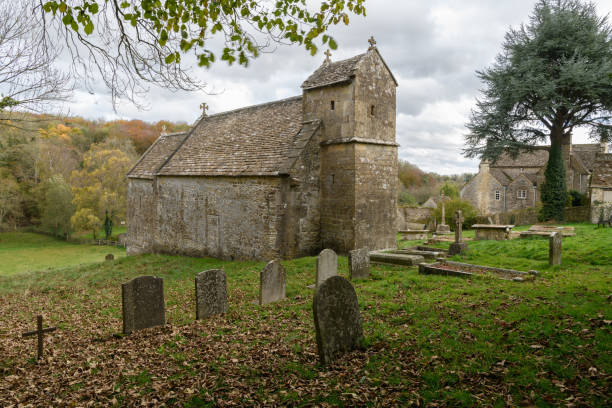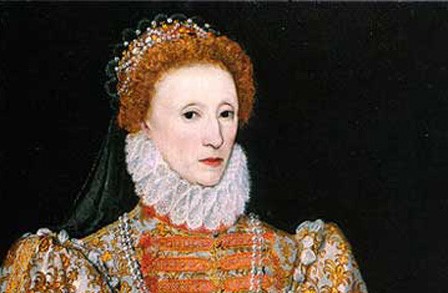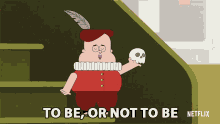14th
Century England
In 14th Century England, power in words lay
in the Bible, but the Bible was in Latin.
The stories of the Bible were shared
through plays like the Mystery Plays – a sort of Biblical soap opera or cartoon
strip.
They were performed in the language of
Chaucer.
In God’s house Latin ruled. Church was
compulsory. Everything was in Latin.
The English wanted a Bible in English.
John Wycliffe
John Wycliffe was an anti-Clerical "scripturist".
He believed the Church was deeply corrupt.
He believed everyone should have the right to read the word of God for themselves.
1380 – beginning the translation from Latin
to English.
Many phrases we use to today were read
first in Wycliffe’s Bible.
Such as....
An Eye for an Eye
Birthday
Frying pan
Childbearing
Madness
There were still a lot of Latin words and
Latin word order. They were still nervous about using English.
The Lollards, followers of Wycliffe.
They were banned.
The
English Bible was banned.
Wycliffe was
condemned as a heretic.
Ouch
Early
15th Century
Early 15th Century (The Battle
of Agincourt etc)
Henry 5th ‘s campaign dispatches
written in English.
Anti-French fervor. Brexit!
When Richard returned from his campaign he started to make English
the language of government.
There were big problems in standardizing it.
These are variations on a single word:
Kirk
Kyrke
Kyrk
Kerk
Kerke
Kirc
Cherche
Cherch
Chirche
Chyrche
Chyrch
Cherge
Schyrche
Churche
Church
OMG!
Slowly, under the influence of the Chancery,
English began to look more like it does today.
Iche became I
Lond became land.
Enig became any
Xal became schal became shall
Hath and doth became has and does
“traditionalists” determined a lot of our spellings and formations – they tried to
reflect the origins of words.
For example, words that were thought to be of Greek
origin were given special spellings. I.e. the ‘h’ in Theatre and rhythmn.
The
Great Vowel Shift - 1350 to 1600
Through the
Great Vowel Shift, all Middle English long vowels changed their pronunciation.
Might sounded like meat.
“I might go and buy some meat.” Probably
sounded like “I meet go and boy some mit”.
But it didn't change the spelling.
The influence of the Traditionalists and the Great Vowel Shift go some way to explaining why English spelling is so characteristically non-phonetic and illogical, although apparently some of the other inconsistencies are to do with the licenses taken by early printers who were paid per letter and regularly added letters! (An example of this is the word "tongue").
The influence of the Traditionalists and the Great Vowel Shift go some way to explaining why English spelling is so characteristically non-phonetic and illogical, although apparently some of the other inconsistencies are to do with the licenses taken by early printers who were paid per letter and regularly added letters! (An example of this is the word "tongue").
Movable
Type
Printing invented by Guttenberg in in Mainz in the 1440s
(This marvel of German precision was apparently inspired by the grape
press used in wine making.)
With the introduction of moveable type
printing, it became hard to control the spread of ideas and written language.
William Caxton introduced printing to
England.
Printers like Caxton began shaping the form
and usage of the written word.
Henry 8th 1491 – 1547
During this era William
Tyndle finished Wycliffe’s project of a popular English Bible, but
translating it from Hebrew and Greek.
We get many well-known phrases from Tyndle
Let there be light
The powers that be
The apple of my eye
A man after my own heart
The spirit is willing but the flesh is
weak
Sign of the times
Ye of little faith
Eat, drink and be merry
Broken-hearted
Beautiful
Fisherman
Seashore
The state imprisoned then murdered
Tyndle. :(
But then...
Henry 8th’s mood changed
when he wanted a divorce.
He split with Rome himself and executed his own
Catholic enforcer Thomas Moore.
Eventually Tyndle’s Bible formed the basis
for the King James Bible, the version of the Bible that by 1611 became the
standard.
By the end of Henry's reign the Reformation was if full swing across Europe.
Elizabeth I (1533 – 24 March 1603)
Elizabeth 1st spoke 6 languages and wrote poetry.
The English vocabulary was rapidly expanding in
this period
The repulsion of the Spanish Armada in
1589 started a new chapter.
No longer was English to be changed and expanded by
invading languages.
A cargo of vocabulary was imported
alongside the goods that came with the trade that came with naval supremacy.
The big influence was still French. But sailor talk and trade terms also came
from Low Dutch, Spanish and Portuguese including..
Fokkinge
Krappe
Bugger
(from Low Dutch)
Yes! The Dutch gave us the F-word!
The 'UK' was only very new. English had only just begun
spreading to Scotland, Wales and Ireland.
Trading expeditions effected the
language at the most domestic of levels:
Apricots
Bananas
Limes
Cocoa
(Through Spanish)
Lychees (Chinese)
Bamboo (Malay)
Curry (Tamil)
Yoghurt (Turkish)
Bizarre, Turban (Farsi)
Coffee, Magazine, Alcohol (Arabic)
Of course, lots of words came from Italian because
of the Renaissance
Opera, Balcony, violin etc.
Universities were on the rise.
Latin was the language of scholars
across Europe
Latin helped to described new
intellectual concepts, techniques and inventions
Skeleton
Excavate
Radius
Submerged
Concept
Technique
Invention
Temperature
Thermometer
Even now we go to Latin and Greek to
name new concepts:
Audio
Video
Internet
Elizabeth's courtiers were all poets as well as
diplomats
Phillip Sydney is the best example. His
poetry was well informed about other European cultures and literature, but he
explored English as a literary language.
Poets like Sydney saw it as their role to invent or introduce new phraseology.
My better half
Far-fetched
Conversation
Shakespeare
1564 – 1616
Shakespeare was not a courtier.
He was born and educated in Stratford. A middle class boy. He had a Stratford accent - in other words a country rather than a city accent.
He picked up French and Italian late.
He didn’t go to university
David Tennant Explains Why Shakespeare Still Matters
1. What does David believe makes Shakespeare so relevant today?
2. What are some of the phrases of Shakespeare mentioned?
3. What might have been the motivation for the author of Shakespeare's plays to hide their identity?
4. Why does David feel the conspiracy theories are snobbish?
5. What kind of accent does David have?
6. Who was the special guest at the commemoration of Shakespeare's death?
7. What was David's final joke referring to?
1. What does David believe makes Shakespeare so relevant today?
2. What are some of the phrases of Shakespeare mentioned?
3. What might have been the motivation for the author of Shakespeare's plays to hide their identity?
4. Why does David feel the conspiracy theories are snobbish?
5. What kind of accent does David have?
6. Who was the special guest at the commemoration of Shakespeare's death?
7. What was David's final joke referring to?
Shakespeare combined the language of the courtiers
with the language of the street.
There were no props or scenery so
language was the primary means of conveying the scene.
The theatres attracted enormous crowds.
1 in 2 Londoners would see a successful
Shakespeare play.
Over 2000 words derive from Shakespeare's works.
He didn't always invent
them, but he used them in a way that gave them currency in the language.
Obscene
Advertising
Courtship
Reliance
Eventful
Shakespeare’s vocabulary was huge.
Any reasonably educated native speaker of English will quote Shakespeare, often without realising it.
As good luck would have it
In my mind’s eye
To be cruel to be kind
Watch:
Quoting Shakespeare
0:00 - 1:00
"It's _____ to me."
"More s_____ against than s______"
"S____ days"
To act "more in s____ than in a____"
"Your ____ is father to the th____"
"________ into thin air"
To refuse to "____ an inch"
"____-eyed jealousy"
To "play ___ and loose"
"tongue-____"
"a tower of _____"
"hood_____ed"
"__ a pickle"
to "k___ your brows"
to "make a v_____ of necessity"
to insist on "f___ play"
Sleep "___ one wink"
to "stand on c_______y"
to "dance attendance to your lord and m______"
to "_____ yourself into stitches"
to "have sh____ shrift"
"___ comfort"
"___ much of a good thing"
"seen _____ days"
"___'s paradise"
"be that as it ___"
"the __ fool you"
a "foregone c_____"
"as ___ ___ would have it"
Like the writer of Beowulf, Shakespeare loved compound words –
often ones that were unique to him:
Baby-eyes
Fair play
Half-blown
Ill-tuned
The power of his plays comes from the interplay of the high
and low words.
He loved insults.
“I’ll tickle your catastrophe!”
“Thou
art as loathsome as a toad.”
























No comments:
Post a Comment